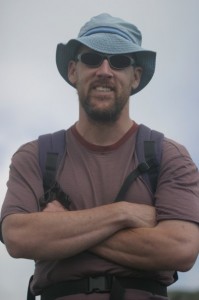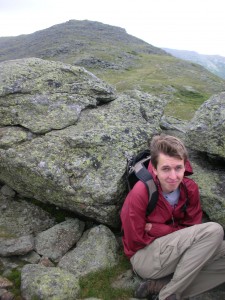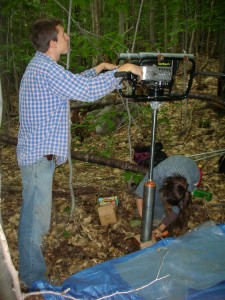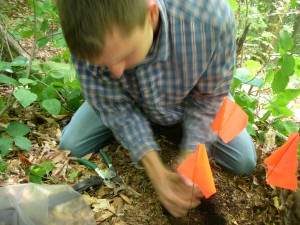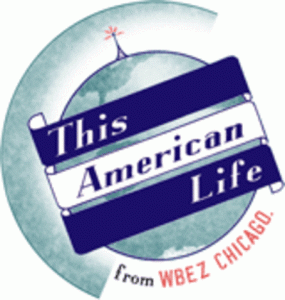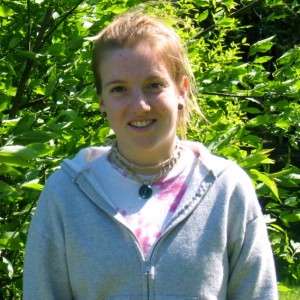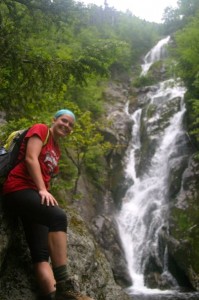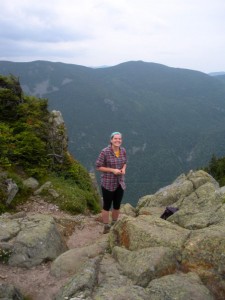Posted in Summer 2009 on August 5, 2009 |
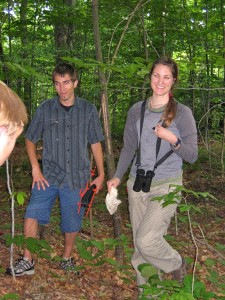
REU Student Cord Dorcey at left
Major and Home University: Biology at University of California Santa Barbara
Research Mentor: Peter Marra
Why/how did you get involved with the program?
He wanted the opportunity to travel, and to explore future career options. He hadn't had a chance to conduct research before, and wanted to get experience before making any career choices. He contacted his research mentor, applied to Hubbard Brook, was accepted, and here he is!
What is your project?
Reconstructing a Terrestrial Food Web, using Carbon and Nitrogen Stable Isotopes.
So essentially, figuring out who eats who eats who in the Northeast, and patterns between trophic levels (producer, herbivore, carnivore, etc).

Example of a food web
Why is it important?
Investigating food webs is important for understanding how energy flows through ecosystems. This information can help us understand ecosystems better, and help us preserve biodiversity.
And finally....what is your favorite piece of gear?
He really enjoys his binoculars

Former President Bush with binoculars (notice the covers are still on...)
Read Full Post »

